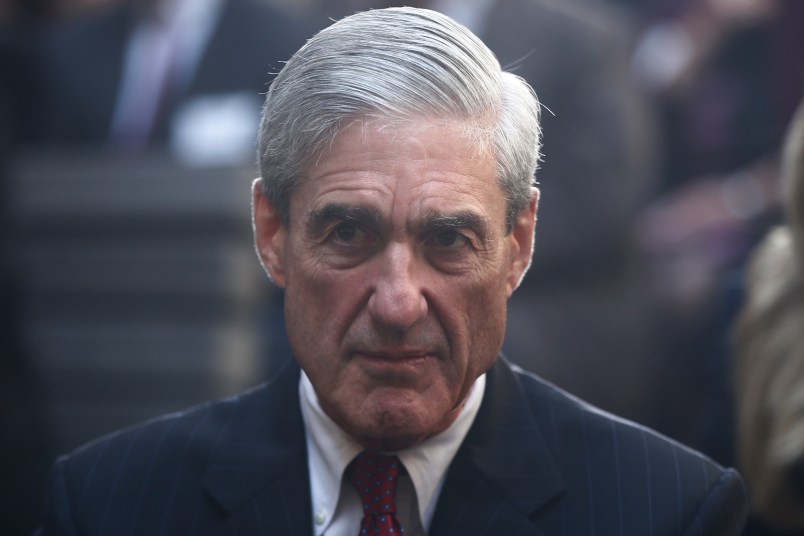During the Trump administration’s very first week in office, the seeds were planted for the initial charges brought by special counsel Robert Mueller’s Russia probe.
Thanks to an indictment unsealed Monday morning, we now know former campaign foreign policy adviser George Papadopoulos lied about the extent of his Russian contacts in an interview with FBI agents on Jan. 27, exactly one week after the inauguration. Papadopoulos has pleaded guilty to making false statements in that interview about his Russian contacts.
Mueller’s appointment didn’t come until May, after Trump fired former FBI Director James Comey, who had been overseeing the bureau’s probe into Russian interference in the U.S. election—and the collection of evidence for that investigation had already begun before Trump had even taken his hand off the Bible. The day before inauguration, the New York Times reported that law enforcement and intelligence sources were already looking at intercepted communications and financial records “as part of a broad investigation into possible links between Russian officials and associates of President-elect Donald J. Trump, including his former campaign chairman Paul Manafort.” Comey later testified before Congress that the FBI investigation into those links began in July 2016; Manafort was arrested on Monday.
Papadopoulos wasn’t even the first campaign adviser accused of misleading the FBI during the initial week of Trump’s presidency: Three days before Papadopoulos’ interview, Michael Flynn, at the time Trump’s national security advisor, denied to FBI investigators that he had discussed sanctions on Russia with Russian ambassador Sergey Kislyak—even though the Washington Post cited U.S. officials saying Flynn had indeed discussed sanctions with Kislyak before Trump took office.
The same day that Papadopoulos met with the FBI, then-acting Attorney General Sally Yates met with White House Counsel Don McGahn to share her concerns about Flynn’s “underlying conduct” for a second time.
The following Monday, Trump fired Yates.
Under oath before Congress, Yates later asserted that problems with Flynn went much farther than being “compromised by the Russians,” as she said the Justice Department believed under her tenure.
“Not only did we believe that the Russians knew this but that they likely had proof of this information,” Yates said in May. “And that created a compromise situation, a situation where the national security advisor essentially could be blackmailed by the Russians.”
Mueller’s investigators are looking into Flynn’s failure to disclose contacts with Russian officials during the campaign and transition, as well as his work on a lobbying contract for a Turkish businessman, and whether he played any role in a former GOP operative’s efforts to obtain Hillary Clinton’s private emails. Flynn has not been accused of any wrongdoing.
That same Friday Papadopoulos lied and McGahn met Yates, Trump also surprised Comey with a private dinner, just the two men alone.
“I need loyalty, I expect loyalty,” Trump told him, according to Comey’s testimony before the Senate Intelligence Committee. Comey interpreted the dinner as “at least in part, an effort to have me ask for my job and create some sort of patronage relationship,” he told the committee.
Trump went on to fire Comey on May 9, giving rise to Mueller’s appointment.







Interesting how they all — Papadopoulos, Flynn, Jared, Sessions — all had the same memory failure about the same topic.
Kind of like they were following the same instruction.
According to Sean Hannity, it’s all “President Clinton’s fault.”
What delicious morsels lay ahead! Since Mr. Papadopoulos has been “proactively cooperating” with Team Mueller since October 5 it will be “loverly” to hear what he came up with. Never underestimate the young, overly ambitious naif.
(Good article in the NYT this morning speculating the damage George P. has already inflicted.)
According to WaPo this morning, Lewandowski should be very worried
Fuck me, I’m stuffed to the gills after yesterday’s spread.
I need some time to digest and to watch for what other lovely delights Meuller and his team cart out in the coming days.